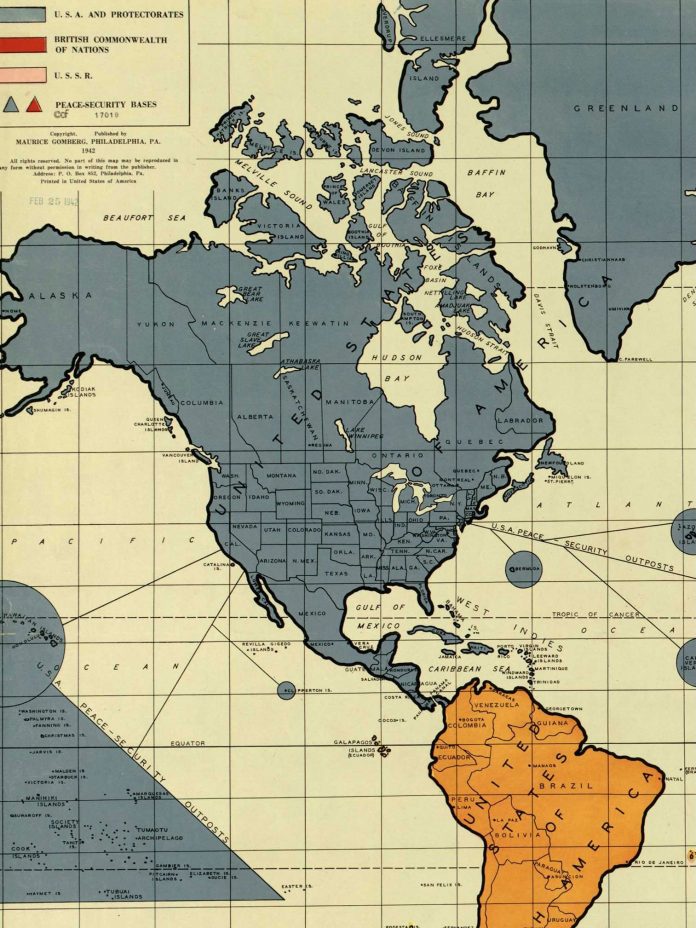
While Sun Tzu was storming Wall Street [1], on a very special Thursday for the stock market, the United States and Russia were negotiating constructively in Istanbul [2], and the next day, Steve Witkoff (SW), Trump’s special envoy for the Middle East and Russia, held a successful four and a half hour meeting with President Putin and Kirill Dmitriev, the Kremlin’s top economic advisor [3].
I have already reported that Russia is playing a mediating role between the United States and Iran [4]. As I mentioned [5], SW traveled from St. Petersburg to Muscat, capital of the super-strategic Sultanate of Oman (the entrance to the Strait of Hormuz in the Persian Gulf): population: 4.64 million; area: 309,501 square kilometers; GDP in purchasing power: $222.6 billion. The astonishing diplomacy of most of the Arab petromonarchies—Saudi Arabia, Bahrain, Qatar, the United Arab Emirates, and Oman—plays a crucial role as a bridge between the three world superpowers. The mediator, Omani Foreign Minister Badr bin Hamad Al Busaidi, declared that the talks “took place in a friendly atmosphere, conducive to building trust” [6].
The White House declared that “discussions with Iran were very positive and constructive.” The two sides agreed to hold a second round next Saturday. “Our message to Iran: President Trump prefers a diplomatic solution.” [7] Iranian Foreign Minister Abbas Araghchi, for his part, declared that the first round of indirect negotiations (sic) had been “constructive and promising.” [8] The Financial Times reports that the two negotiators met briefly (!) at the end of the talks [9].
The negotiations are taking place under a triple sword of Damocles:
1) the threat of Netanyahu bombing Iran’s nuclear power plants, which would trigger a regional Armageddon. At best, the minimum acceptable to the Israeli Prime Minister would be a Libyan-style solution, namely an invitation to suicide and regime change in the Persian country;
2) Trump’s categorical refusal to allow Iran to build nuclear bombs, which the liar Netanyahu is inventing and which, according to him, the Iranian nation possesses; and
3) the stifling sanctions imposed by the United States, which have caused economic devastation in Iran and the sharp devaluation of its currency, the rial.
According to Iran Observer, “Iran has proposed to the United States a denuclearized Middle East, including the complete denuclearization of Israel [10] [11].” Interestingly, this is the proposal your servant made several decades ago, for a “Tlatelolco Treaty for the Middle East,” which has been in the pipeline since I was a founding member and board member of the Federation of Physicians for the Prevention of Nuclear War (IPPNW), a body that received the Nobel Peace Prize in 1985 [12]. My proposal was inspired by the Treaty of Tlatelolco, which earned the Nobel Peace Prize (1982) to one of Mexico’s excellent foreign ministers, Alfonso García Robles, with whom I had discussed this subject at length during a conference we attended in Copenhagen. [13]
According to Russia Today, “Iran has asked the United States to support the denuclearization of the Middle East,” which implies officially declaring Israel’s clandestine nuclear arsenal. Moreover, Iran is currently seeking the release of $6 billion from its Qatari accounts from oil sales negotiated with the Biden collective. It is worth recalling here the opinion of the renowned Israeli strategist Zvi Bar’el, who asserts that “Trump today faces a dilemma: choosing between Netanyahu and Israel, two opposing and hostile entities.” [14].
Israel’s omnipotent multimedia propagandists are fanning, in a synchronized and convenient manner, the nuclear fire of discord, first against Iran, while allowing themselves to claim that the nuclear bombing jointly ordered by Netanyahu and Trump will take place in October. But will Russia, China, and India allow it?
Source
La Jornada (Mexico)
The largest Spanish-language daily newspaper in the world.
